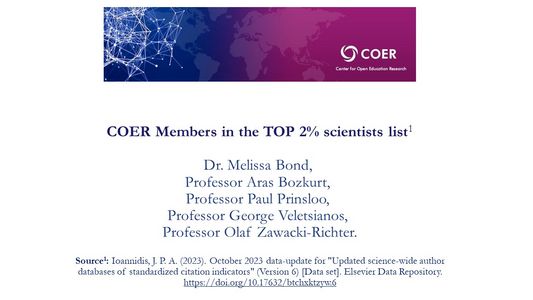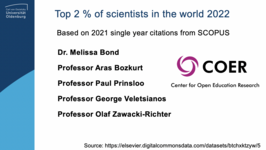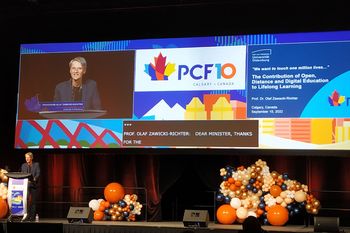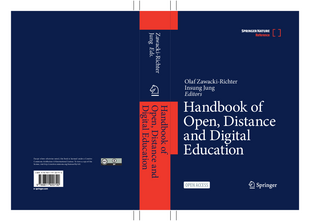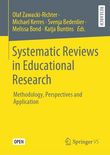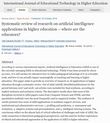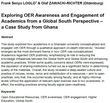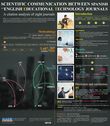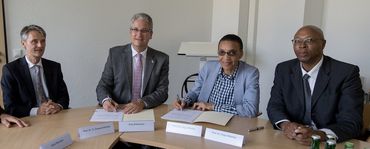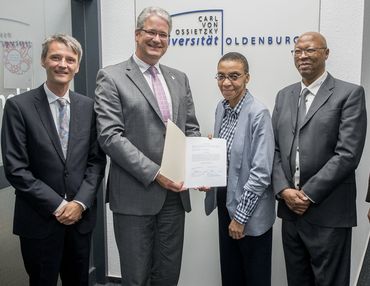Contact Us
COER Director
Professor Olaf Zawacki-Richter
| T +49(0)441 798-2765 | ||
E olaf.zawacki.richter@uni-oldenburg.de
|

Announcements
A new open access journal: JODDE

COER director, Olaf Zawacki-Richter, has proudly announced that a new OPEN ACCESS Journal launched at the Center for Open Education Research at the University of Oldenburg in Germany: the Journal of Open, Distance, and Digital Education (JODDE).
The new journal is run by an international team of Chief-Editors, including (in alphabetical order):
- Dianne Conrad (Canada),
- Michael Kerres (Germany),
- Kyungmee Lee (South Korea),
- David CL Lim (Malaysia),
- Paul Prinsloo (South Africa),
- Patricia J Slagter van Tryon (USA),
- Junhong Xiao (China),
- Olaf Zawacki-Richter.
JODDE welcomes manuscripts that advance the understanding of ODDE on the macro- and meso-levels of educational systems and institutions undergoing digital transformation.
The first issue of JODDE is available at the website: www.jodde.org
The first issue includes articles from distinguished authors from our field (in alphabetical order): V. Balaji, Mark Brown, Josep M Duart, Shandell Houlden, Jyotsna Jha, Diana Laurillard, Tony Mays, Mark Nichols, Ross Paul, Peter Scott, George Veletsianos. Furthermore, Kathryn Johnson conducted an interview with Tony Bates.
ETHE High-Impact Award goes to COER
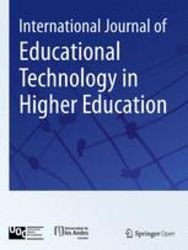
We are excited to announce that the paper titled "Systematic review of research on artificial intelligence applications in higher education – where are the educators?", co-authored by our COER director and members, Prof. Olaf Zawacki-Richter, Dr. Victoria I. Marín, Dr. Melissa Bond & Franziska Gouverneur, has been recognized with the prestigious ETHE High-Impact Paper Award. This award celebrates outstanding contributions to the field of educational technology in higher education as part of the 20th anniversary of the International Journal of Educational Technology in Higher Education (ETHE).
The paper, titled , has been honored for its significant academic impact. The paper has surpassed notable benchmarks, including:
- Citations exceeding 306
- Altimetric scores surpassing 117, placing it within the top 5% attention rank and in the 99th percentile compared to papers of similar age across all journals.
The paper was selected based on rigorous evaluation by a review committee:
- (1) Prof. Insung Jung, retired Professor of Education at the International Christian University, Japan, now visiting research scholar at Seoul National University, South Korea;
- (2) Prof. Mark Brown, Director of the National Observatory for Digital Education, based at Dublin City University, Ireland; and
- (3) Prof. Alvaro Galvis, retired Professor of Education at the University of the Andes, Colombia., considering both quantitative metrics (downloads, citations, altimetric scores) and qualitative criteria (interdisciplinary contributions, real-world impact, societal advancement, and technological enhancement in teaching and learning).
Congratulations to COER team for this exceptional achievement! Their work exemplifies the innovative and impactful research that continues to advance the field of open, distance and digital education.
Congratulations to all other five articles for receiving the prestigious award. You can access the details and the all award-winning papers here: https://educationaltechnologyjournal.springeropen.com/ethe-high-impact-award-page
For more details, you can read the award-winning paper here.
Dr. Aras Bozkurt is the new chief editor of Open Praxis!
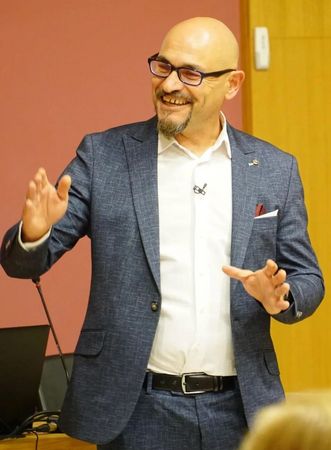
Dr. Aras Bozkurt is now the Editor-in-Chief of the prestigious Open Praxis journal. Open Praxis is an influential journal dedicated to research and innovation in open, distance, and flexible education, and Dr. Bozkurt's new role is a testament to his significant contributions to the field. We congratulate Dr. Bozkurt on this outstanding achievement and look forward to the innovative advancements he will bring to Open Praxis.
To find the thought-provoking articles of Open Praxis, please visit openpraxis.org.
COER Members in the TOP 2% scientists list again!
Congratulations to COER Members!
A huge congratulations to COER members, who were named in the recent Stanford University 2022 list of the top 2% of scientists globally.
Dr. Melissa Bond, Professor Aras Bozkurt, Professor Paul Prinsloo, Professor George Veletsianos, and Professor Olaf Zawacki-Richter were named in the recent Stanford University 2023 list.
The database includes not just traditional metrics like citation counts and h-index, but also introduces the co-authorship adjusted hm-index, citations according to different authorship positions, and a composite indicator known as the c-score. This broad spectrum of metrics aims to give a more balanced and fair representation of a scientist's impact.1 It also includes:
- Classification of scientists into 22 fields and 174 sub-fields, following the Science-Metrix classification.
- Field- and subfield-specific percentiles for scientists with at least 5 papers.
- Career data updated to the end of 2022, with recent year data for 2022.
- Selection criteria based on the top 100,000 scientists by c-score or a top 2% percentile rank in their sub-field.
This database, currently in its sixth version, is based on data from Scopus as of October 1, 2023, and reflects citations up to the end of 2022. It aims to focus on impact rather than productivity, incorporating detailed information on co-authorship and author positions.
For more detailed information and the whole list please visit the source: https://elsevier.digitalcommonsdata.com/datasets/btchxktzyw/6
1Ioannidis, J. P. A. (2023). October 2023 data-update for "Updated science-wide author databases of standardized citation indicators" (Version 6) [Data set]. Elsevier Data Repository. https://doi.org/10.17632/btchxktzyw.6
COER Members in the TOP 2% scientists list
Congratulations to COER Members!
A huge congratulations to COER members, who were named in the recent Stanford University 2022 list of the top 2% of scientists globally.
Dr. Melissa Bond, Professor Aras Bozkurt, Professor Paul Prinsloo, Professor George Veletsianos, and Professor Olaf Zawacki-Richter were named in the recent Stanford University 2022 list, which is „a publicly available database of top-cited scientists that provides standardized information on citations, h-index, co-authorship adjusted hm-index, citations to papers in different authorship positions and a composite indicator (c-score)” (Ioannidis, 2022).
For detailed information and the whole list please visit the source: https://elsevier.digitalcommonsdata.com/datasets/btchxktzyw/5
Ioannidis, John P.A. (2022), “September 2022 data-update for "Updated science-wide author databases of standardized citation indicators"”, Mendeley Data, V5, doi: 10.17632/btchxktzyw.5
COER Director delivers a keynote at PCF10
COER Director, Prof. Dr. habil. Olaf Zawacki-Richter delivered his keynote speech on „The Contribution of Open, Distance, and Digital Education to Lifelong Learning” at PCF10, Calgary, Canada on the 15th of September 2022. In the time of embracing open, distance and digital learning globally due to the pandemic, Prof. Zawacki-Richter addressed all key actors from ministers of education to researchers in his keynote and highlighted the risk of neglecting the long-established pedagogical and ethical foundations of the ODDE. More information on his speech can be found in the PCF10 newsletter.
Pan-Commonwealth Forum on Open Learning (PCF) takes place every three years and hosted by Commonwealth of Learning (COL). PCF10 in 2022 was co-hosted by COL and Athabasca University.
Featured Publication
Handbook of Open, Distance and Digital Education – Available Open Access
Dr. Olaf Zawacki-Richter (Editor-in-Chief), Dr. Insung Jung (Editor-in-Chief)
2022
This is a living reference work. More than 80 chapters on ODDE around the world will be available.
The Fred Mulder Award 2021 for Best Paper goes to COER Members!
Fantastic news has arrived before 2021 comes to an end! Aras Bozkurt and Olaf Zawacki-Richter won the 2021 Fred Mulder Awards for Best Open Education Research Paper. The Global OER Graduate Network (GO-GN) launched Fred Mulder Awards in 2017 to honor the best open practice and research in open education. Given annually, the awards are presented after the independent selection process of an award committee and the GO-GN team.
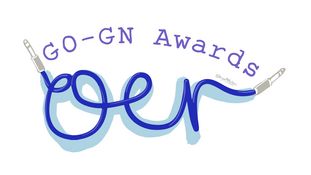
New Project on Artificial Intelligence Applications in Higher Education
COER has launched its new project "Prospects for the Future of Learning: Artificial Intelligence Applications in Higher Education". The project funded by The Volkswagen Foundation and the state of Lower Saxony will take place for four years (2021-2024 inclusive) at the University of Oldenburg, Germany with fellow collaborators from China, Japan, the USA, Spain, and Turkey.
→ More information
COER Members have four articles in the Top 10 Open Access Articles of 2019
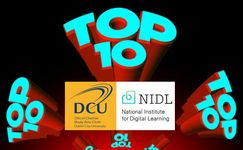
In absolutely fantastic news to begin the new year, COER members have been recognised in the annual National Institute for Digital Learning Top 10 Open Access Articles list. Four of the ten articles were co-written by COER members, with information quoted from the NIDL website here:
No 5 – Spilker, M., Prinsen, F., & Kalz, M. (2019): Valuing technology-enhanced academic conferences for continuing professional development. A systematic literature. Professional Development in Education. Available from www.tandfonline.com/doi/full/10.1080/19415257.2019.1629614
"This article explores a very interesting topic by offering a systematic search for and analysis of the state of the art concerning research (1993–2018) on technology-enhanced conferences for academics’ professional development. It provides good reading, particularly given the high number of conferences in the field and that attending such events is an accepted form of “academic citizenship” and often taken for granted as valuable professional development. The paper builds on Jacobs and McFarlane’s (2005) view that ‘little attention has been paid either to developing a theoretically informed understanding of conference practice as knowledge building, or to assessing the extent to which conferences are successful’. We partly selected this paper as last year it provided uesful food for thought and evidence-based research for our decisions in designing the ICDE World Conference on Online Learning."
No 6 – Zawacki-Richter, O., Marin, V., Bond, M., & Gouverneur, F. (2019). Systematic review of research on artificial intelligence applications in higher education – where are the educators? International Journal of Educational Technology in Higher Education, 16:39, 2-27. Available from doi.org/10.1186/s41239-019-0171-0
"This article offers precisely what the title suggests and was hard to overlook given the current level of hope and hype surrounding the potential of AI in higher education. Notably, the results show that ‘most of the disciplines involved in AIEd papers come from Computer Science and STEM, and that quantitative methods were the most frequently used in empirical studies’. It follows that the paper concludes by reflecting on the lack of critical reflection of challenges and risks of AIEd, the weak connection to theoretical pedagogical perspectives, and the need for further exploration of ethical and educational approaches. A seminal read for educators, computer scienists and those making predictions about the futiure impact of AI on higher education."
No 8 – Pozzi, F., Manganello, F., Passarelli, M., Persico, D., Brasher, A., Holmes, W., Whitelock, D., & Sangrà, A. (2019). Ranking meets distance education: Defining relevant criteria and indicators for online universities. International Review of Research in Open and Distributed Learning, 20(5), 42-63. Available from www.irrodl.org/index.php/irrodl/article/view/4391/5232
"This article explores a notable gap in current university ranking systems and so-called league tables. In the absence of global rankings for online providers—for better and worse–it offers a participatory approach based on a Delphi study to define a set of criteria and indicators suitable to reflect the specific nature of online distance education. The intention is to help evaluate and rank online higher education institutions more appropriately than in current practice. The paper was selected as we anticipate there will be further developments in this area in the next year or so as the provision of online education increassingly transcends national borders."
No 9 – Bond, M., Zawacki-Richter, O., & Nichols, M. (2019). Revisiting five decades of educational technology research: A content and authorship analysis of the British Journal of Educational Technology. British Journal of Educational Technology. 50 (1), 12-63. Available from onlinelibrary.wiley.com/doi/epdf/10.1111/bjet.12730
"This review article appearing in a traditionally closed journal celebrating its 50 years of publication is hard to overlook as it reflects on five decades of educational technology research. What makes the analysis more interesting and arguably useful is a comparison to a previous meta-analysis of articles appearing in Computers & Education. Common themes identified over the past 50 years include the evolution of teaching and learning in distance education, the emergence of instructional design, misunderstanding between practitioners and learning designers, issues of pre and in-service teacher education and technology uptake by educators and students, including the confidence to do so, the technology skills of educators and students, as well as a lack of institutional support to provide space and time for training and integration to occur."
Featured Publication
Systematic Reviews in Educational Research - Available free open access!
Dr. Olaf Zawacki-Richter, Dr. Michael Kerres, Dr. Svenja Bedenlier, Melissa Bond and Katja Buntins
2019
Featured Publication
Systematic review of research on artificial intelligence applications in higher education – where are the educators?
Dr. Olaf Zawacki-Richter, Dr. Victoria Marin, Melissa Bond and Franziska Gouverneur
2019
Featured Publication
Facilitating Student Engagement Through Educational Technology: Towards a Conceptual Framework
Melissa Bond and Dr. Svenja Bedenlier
2019
Featured Publication
Exploring OER Awareness and Engagement of Academics from a Global South Perspective – a Case Study from Ghana
2019
Featured Publication
Scientific Communication between Spanish and English Educational Technology Journals. A Citation Analysis of eight Journals.
2019
Featured Publication
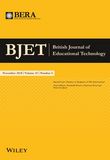
Learning ecologies through a lens: Ontological, methodological and applicative issues. A systematic review of the literature
Dr. Albert Sangrá, Juliana Elisa Raffaghelli & Montse Guitert‐Catasús
2019
Featured Publication

Revisiting five decades of educational technology research: A content and authorship analysis of the British Journal of Educational Technology
Melissa Bond, Olaf Zawacki-Richter and Mark Nichols
2018
Featured Publication
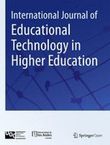
Digital transformation in German higher education: student and teacher perceptions and usage of digital media
Melissa Bond, Victoria Marin, Carina Dolch, Svenja Bedenlier & Olaf Zawacki-Richter
2018
MOOC open on Open Education Resources and Practices by The Open University of Sri Lanka
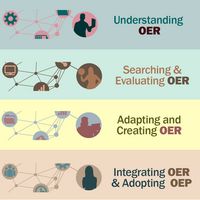
The Open University of Sri Lanka is offering the first Massive Open Online Courses (MOOCs) on Open Educational Resources (OER) and Open Educational Practices (OEP), available for practitioners/professionals from any field of study.
Registration is now open, until 19 October, 2018, at http://www.ou.ac.lk/apps/mooc/
Free OER Now Available: Open and Distance Education in Australia, Europe and the Americas
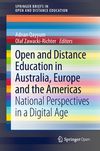
Open and Distance Education in Australia, Europe and the Americas is now available as a free eBook download through Springer.
Free OER Now Available: Experiences in Self-Determined Learning
Experiences in Self-Determined Learning is now available as a free PDF file through the Center of Open Education Research (COER).
MoU signing between the University of Oldenburg and the University of South Africa
On Thursday, 19th July 2018, the University of South Africa's Vice President Prof. Gugu Moche signed a Memorandum of Understanding with the University of Oldenburg, to enable COER to offer professional development to the staff of Unisa.
Vale Colin Latchem (1933-2018)

It is with great sadness that we announce the sudden passing of COER member, valued colleague and treasured friend, Professor Colin Latchem. He was a preeminent Australian researcher, writer, consultant and teacher within the field of open and distance learning, and we had been eagerly looking forward to his keynote address at the Inaugural COER Symposium on October 1st this year. Prof. Dr. Som Naidu will present the address at the Symposium in honour of Colin's memory.
Rest in Peace.

Featured Publication
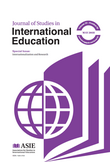
Two Decades of Research Into the Internationalization of Higher Education: Major Themes in the Journal of Studies in International Education (1997-2016)
Svenja Bedenlier, Yasar Kondakci and Olaf Zawacki-Richter
2018
Featured Publication
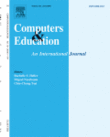
Exploring four decades of research in Computers & Education
Olaf Zawacki-Richter and Colin Latchem
2018
Distance Education - Call for Special Issue on Learning Analytics
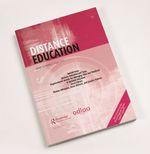
Special Issue on Learning Analytics: Its Scope and Potential in Open, Flexible and Distance Learning
Jingjing Zhang, Beijing Normal University, China
Daniel Burgos, Universidad Internacional de La Rioja (UNIR), Spain
Shane Dawson, University of South Australia, South Australia
The aim of the special issue is to foster scientific debate among educationists, data and learning scientists, statisticians, computer scientists, teachers, practitioners and others to understand how learning analytics can lead to an understanding of learning and teaching process while (re)invigorating the quality of online and distance education. In this special issue, we invite state-of-art research studies that show how new theoretical models and innovative approaches have been employed to understand learning and teaching through the use of large-scale or granular datasets. Given the potential of learning analytics to provide new insights into contemporary education challenges, there are numerous topics that may be addressed such as: Improvements in understanding the learners, their learning process and outcomes, and the learning environment or assessment, feedback and sense-making of data visualisations. The specific context for these studies should centre on open, flexible and distance learning.
Important Dates
- One-page proposal due: 30 July, 2018
- All proposals to be sent to Jingjing Zhang
- All queries and questions to Jingjing Zhang
- Completion of first review round: 30 August, 2018
- Full manuscripts due: 15 January, 2019
- Final decision notifcation: 30 March, 2019
- Camera ready: 15 July, 2019
- Publication of special issue: AUGUST, 2019
For more information about the special issue, please download this document.
Featured Publication
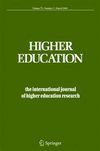
Social network analysis of international student mobility: uncovering the rise of regional hubs
Yasar Kondakci, Svenja Bedenlier and Olaf Zawacki-Richter
2018
Featured Publication
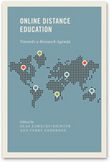
Online Distance Education: Towards a Research Agenda
Edited by Olaf Zawacki-Richter and Terry Anderson
2014



